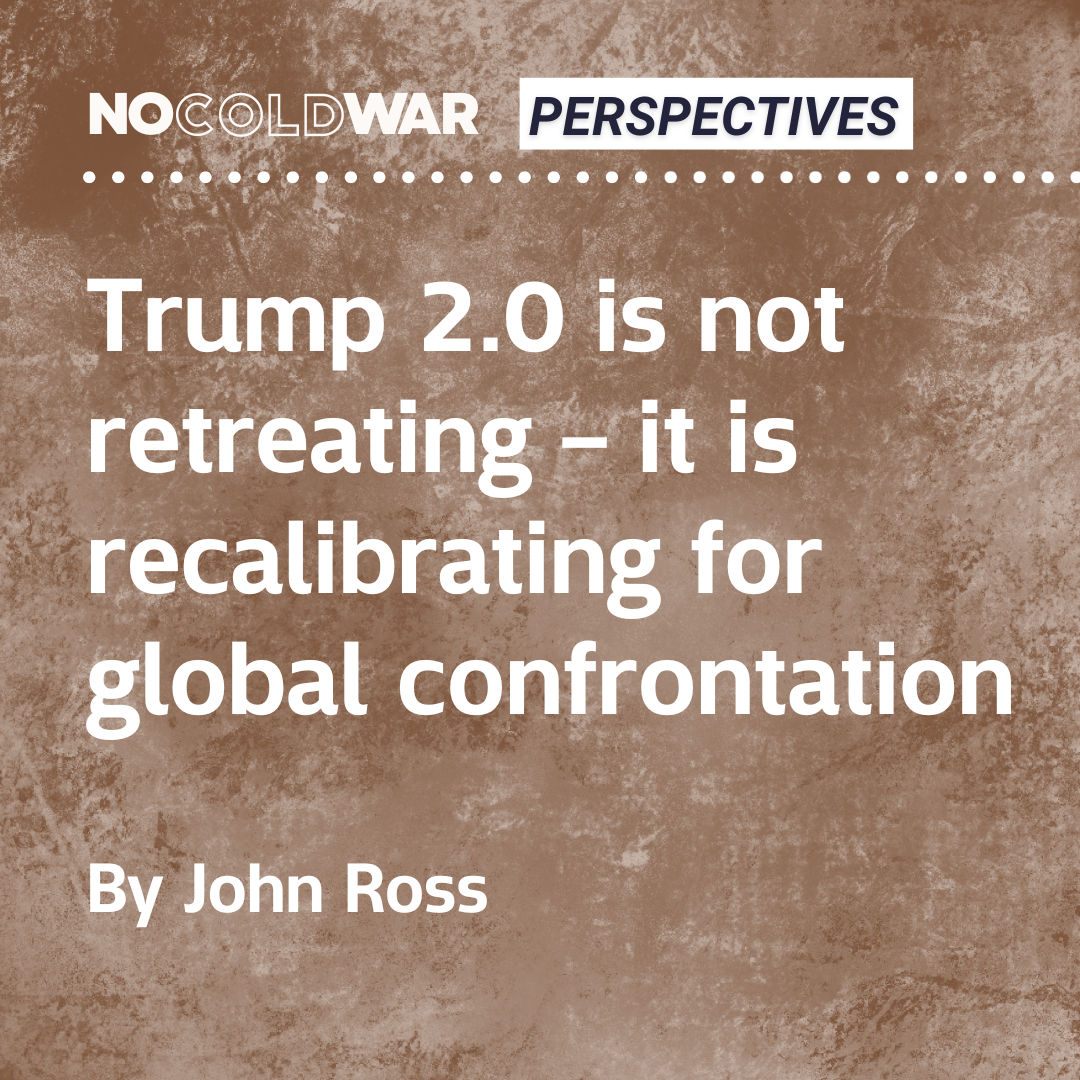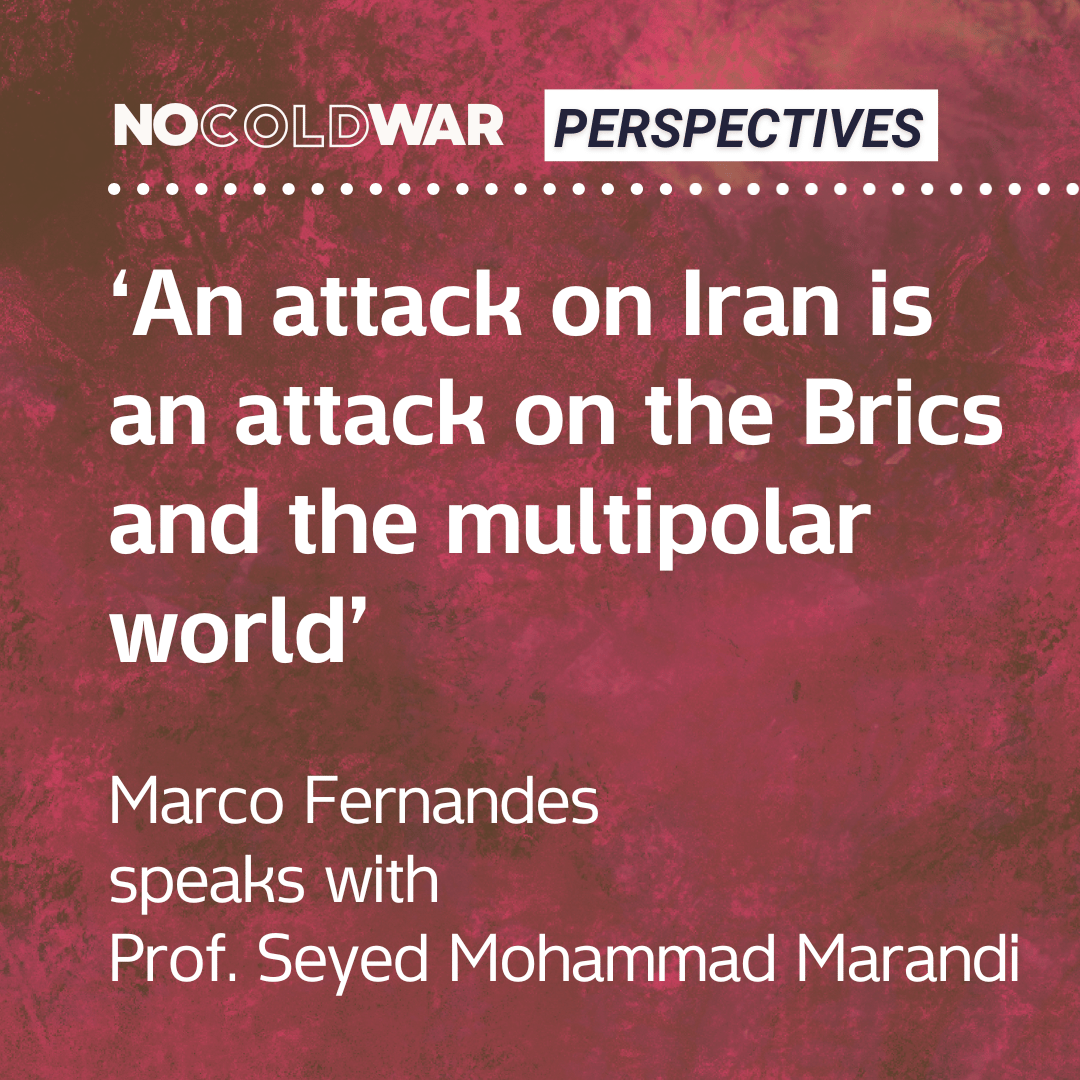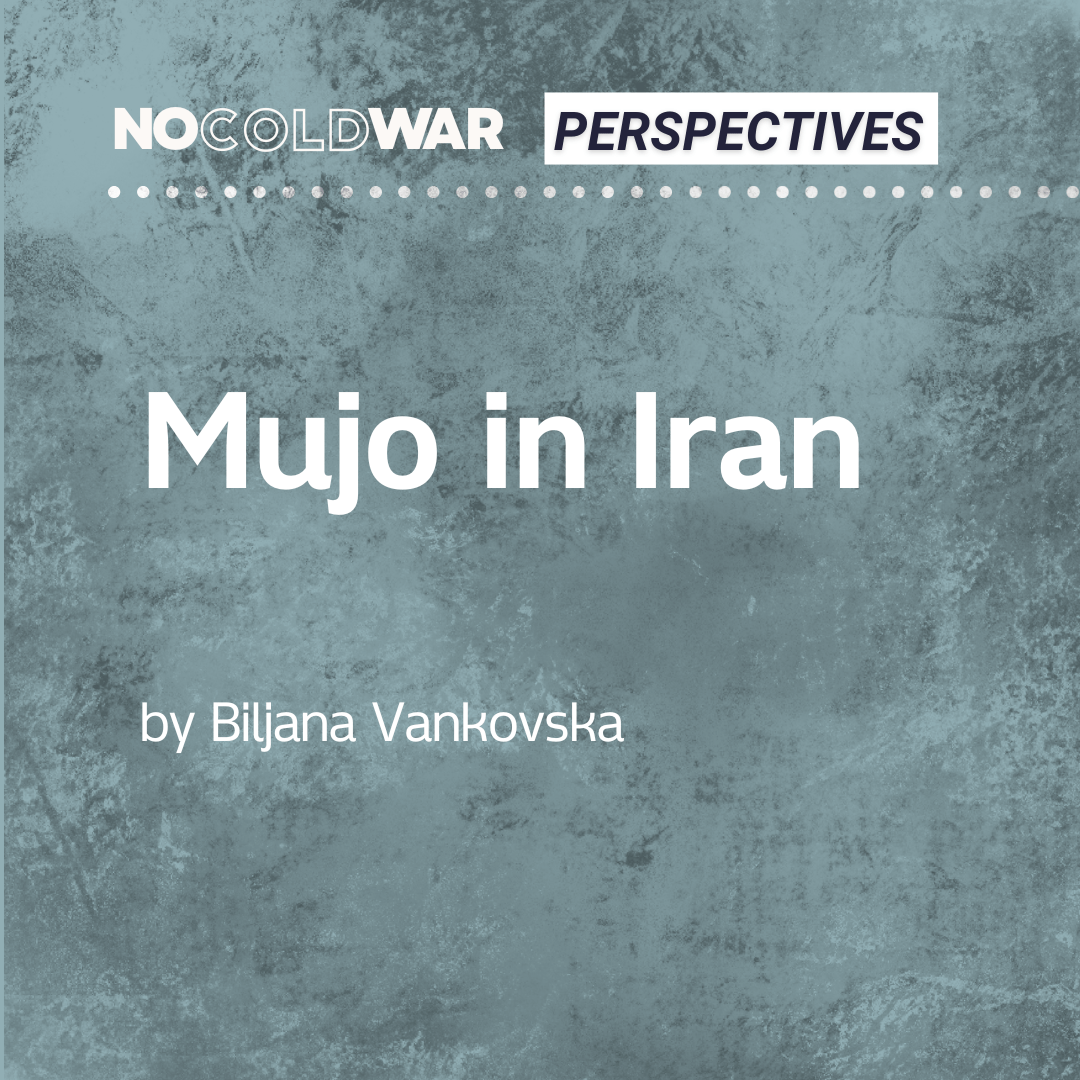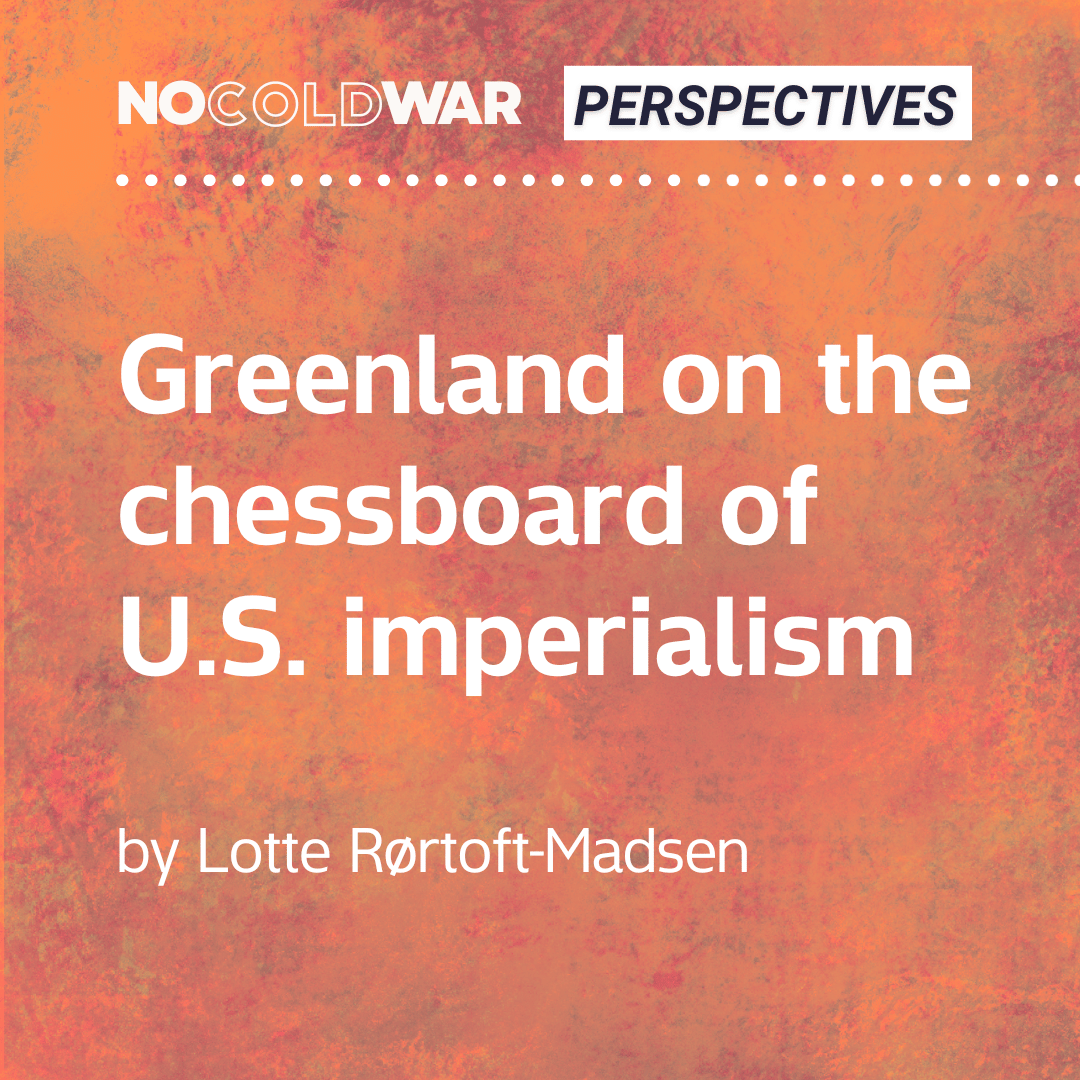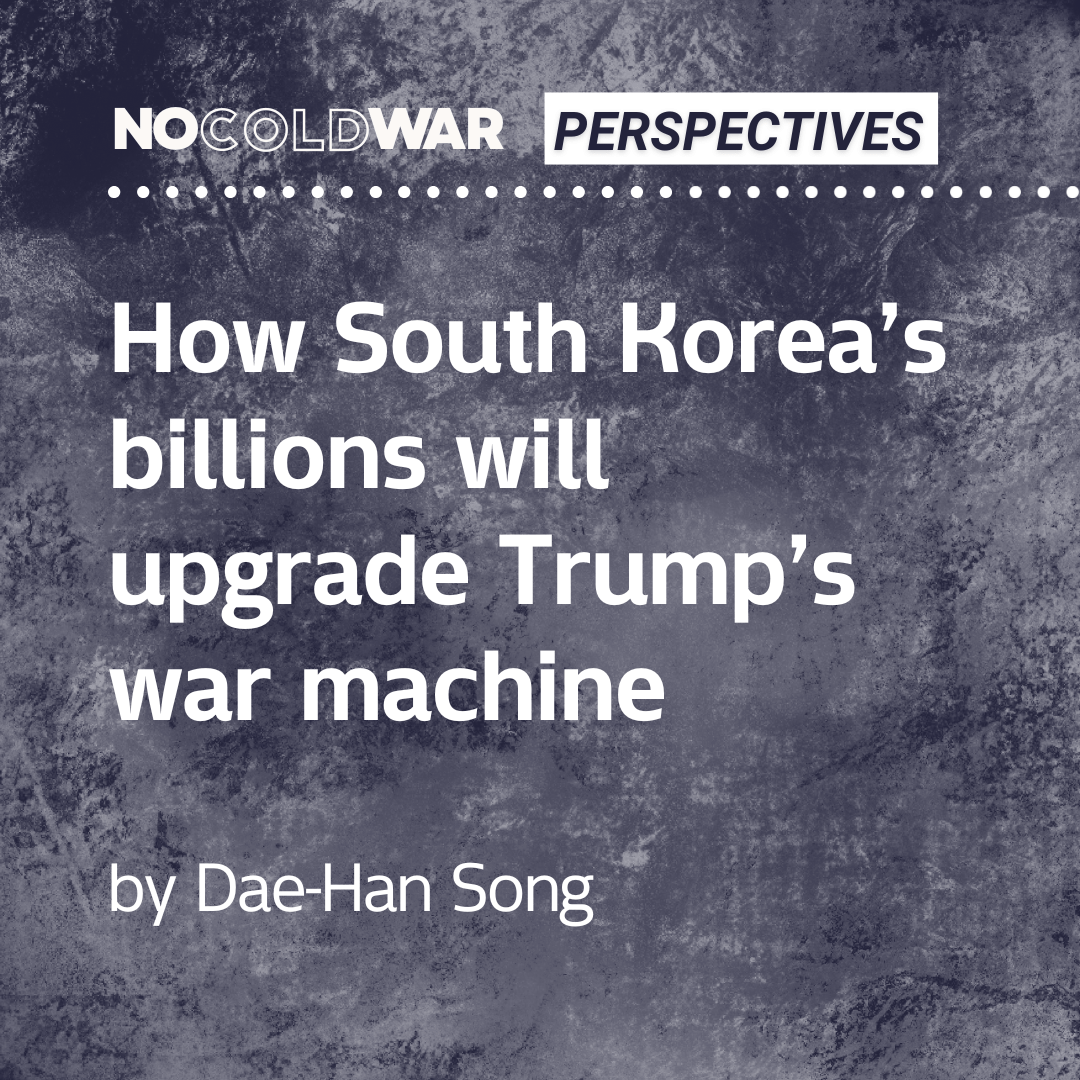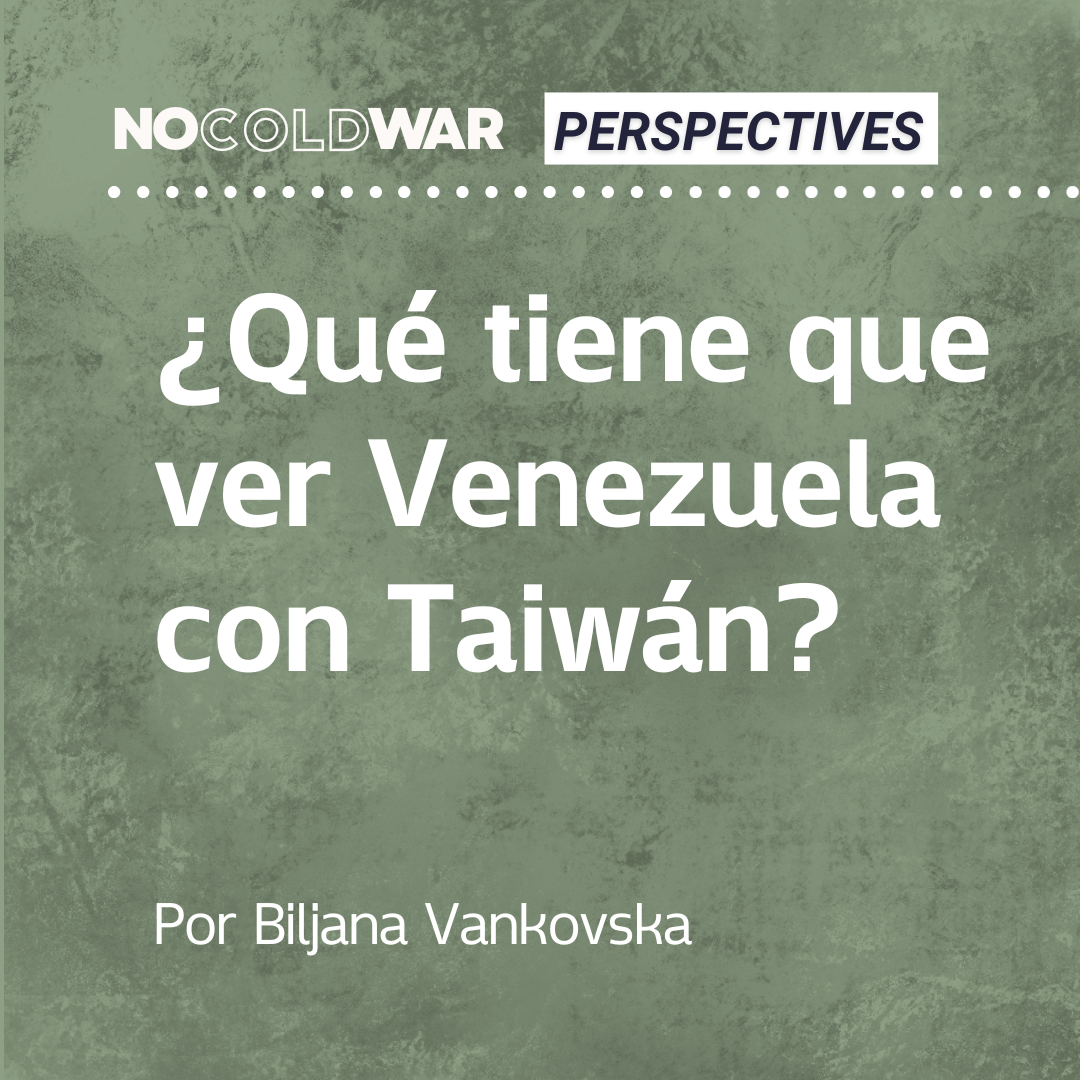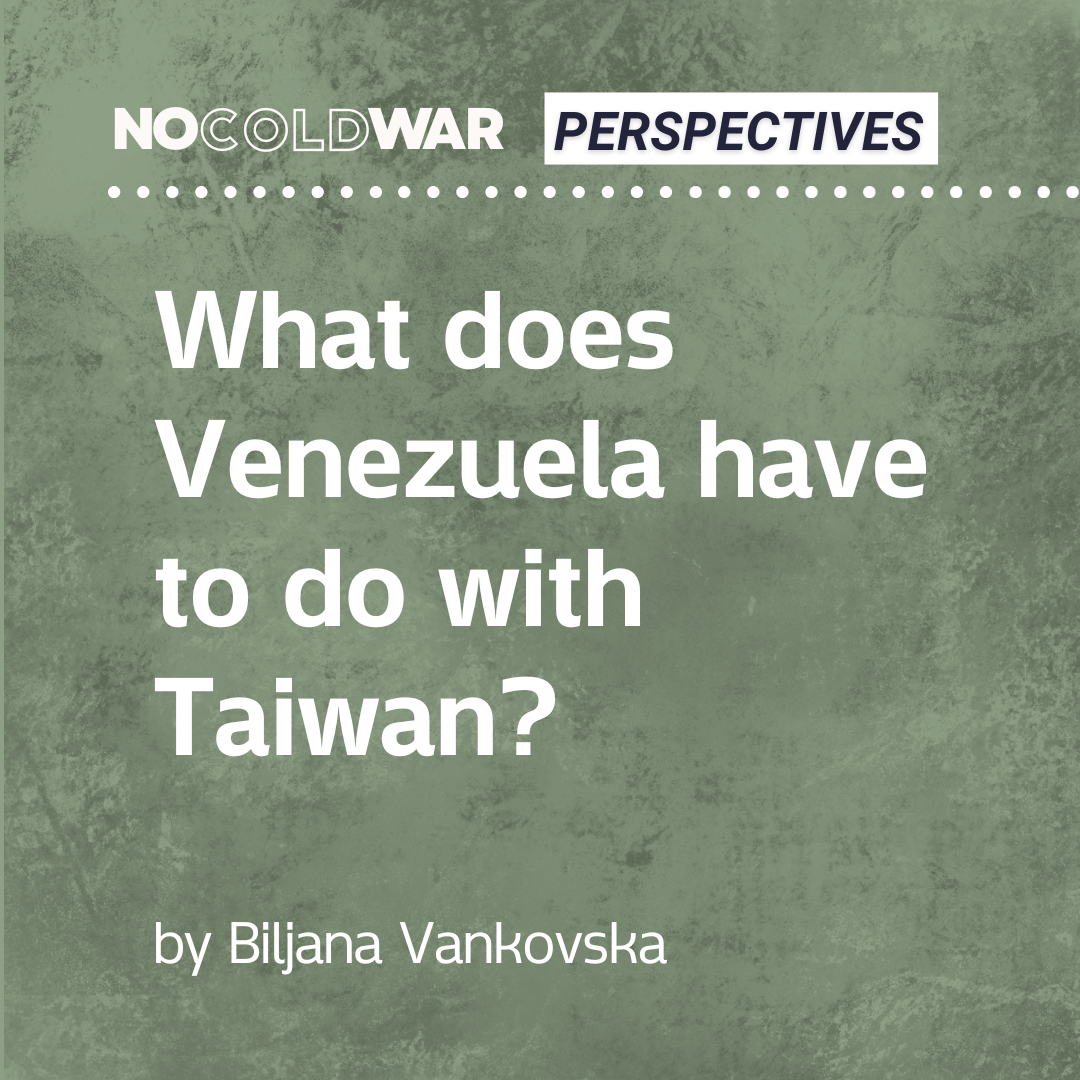Marco Fernandes speaks with Prof. Seyed Mohammad Marandi
Shortly after the kidnapping of Venezuelan President Nicolás Maduro and Deputy and former President of the National Assembly, Cilia Flores, in the first days of the year, the White House directed its “regime change” machine towards another energy power, Iran. About to celebrate its 47th anniversary, the Islamic Revolution has always been a thorn in the side of the U.S. and, especially, Israel. Tehran is the biggest supporter of the Palestinian cause in the world and, in practice, the biggest obstacle to the Zionist project of “Greater Israel,” which presupposes the expulsion or extermination of the Palestinian people from their land. For this reason, overthrowing the Iranian revolutionary government has always been among the priorities of Washington and Tel Aviv.
Like Cuba, Iran has also been the target of heavy sanctions from the West – imposed in different waves – since the revolution that overthrew the dictatorship of Shah Reza Pahlevi. These sanctions have caused countless damage to its economy and its people, and since October, they have been aggravated by a new round of sanctions imposed through the UN. To make matters worse, the U.S. has admitted to carrying out financial attacks to devalue the Iranian currency in recent months, causing enormous economic pressure, which initially triggered legitimate and peaceful popular protests. However, after a few days, mainly on 8 and 9 January, these protests were infiltrated by agents organised by external forces from the U.S. and Israel (as publicly admitted by both), causing much destruction and death on the streets of the country, and were strongly repressed by the Iranian security forces. As a popular reaction, massive street demonstrations in support of the government took place on 12 January.
Since then, the U.S. has been deploying numerous military forces to the region and Trump has spent days threatening to bomb Iran, but in recent days he seems to have backed down after Iranian threats that a U.S. attack would result in a regional war. A first round of negotiations between the U.S. and Iran took place last Friday (6) in the United Arab Emirates, apparently without significant results. But both countries have stated that they are discussing the possibility of a second round of negotiations.
To analyse this situation, BdF‘s geopolitical analyst Marco Fernandes spoke with Mohammad Marandi, professor of English literature at the University of Tehran and one of the leading authorities on geopolitical analysis of Iran in Western media. Marandi is the son of an important figure in the Islamic revolutionary movement, paediatrician Alireza Marandi (who served twice as Minister of Health of the Islamic Republic), and was born in the United States, where he lived until the age of 13, as his family was exiled to escape the dictatorship of Shah Pahlavi. Shortly after returning to Iran at the age of 16, Marandi volunteered for the Islamic Revolutionary Guard Corps to fight in the war against Iraq, where he escaped death four times – having been shot twice and targeted by two chemical attacks.
Read the full interview
BdF – In recent days, the U.S. has sent its navy to the Persian Gulf region and Trump has threatened to attack Iran, trying to force negotiations for the country to suspend its nuclear programme, hand over its ballistic missiles and stop supporting the Palestinian resistance in the region. What are the chances of negotiation on these terms? What is the Iranian government willing to negotiate?
Prof. Seyed Mohammad Marandi – The Iranian position is quite clear. In fact, it is quite clear that it will not negotiate its military capabilities. Therefore, its missile programme is out of the question. Nor will it negotiate its regional alliances. Therefore, these are also out of the question. The nuclear programme is something Iran is willing to discuss, but not enrichment itself. That is also out of the question. What can be negotiated is a mechanism to ensure that Iran’s nuclear programme is peaceful. This is something we have done before and which Trump himself destroyed.
The JCPOA (Joint Comprehensive Plan of Action), the 2015 nuclear agreement. So that is what Iran is willing to negotiate. Of course, Iran will expect a much better deal than the 2015 one at the negotiating table. Because Iran has moved on since then and has been betrayed by the U.S.’s violation of that agreement. And Iran has suffered because of it. Therefore, the only thing really open for negotiation is a framework in which Iran’s uranium enrichment programme can operate and address, or take into account, the concerns, or potential concerns, of Western countries.
The Iranian government has responded in recent days that any attack on the country will be met with a regional war against the U.S. and its allies. If that happens, what are the possible military and economic consequences of a regional conflict? The Wall Street Journal published an article stating that Trump has backed away from an attack at this time due to a lack of sufficient defence for his allies in the region in the event of an Iranian counterattack. How do you assess that statement?
Yes, this is a position that the Iranians have stated, and they will definitely follow through on what they have said they will do. If the United States attacks Iran, even if it is a limited attack, the Iranians will respond with full force. Iran will not accept aggression and will not allow the United States to be encouraged to commit aggression. Therefore, if the United States decides to attack Iran, there is no doubt that the United States will suffer a very strong attack.
The recent protests, which began over a legitimate economic issue – the devaluation of the rial – were clearly exploited by external forces, such as Mossad (acknowledged by both Mike Pompeo and Israeli authorities), to destabilise the revolutionary government. The Western media has stirred up a “scandal” over the alleged thousands of deaths attributed to the crackdown on protests, but nothing is said about the number of police officers and officials murdered by foreign intelligence agents. What really happened during those days?
It is quite clear what happened. The West is making up a story. They carried out a conspiracy against the country, first by putting pressure on the rial, something that the U.S. Treasury Secretary has already admitted twice and even boasted about. Then there were peaceful protests, which did not result in arrests or police persecution. But after a few days of protests, which were not very large, we saw a sudden influx of very well-trained protesters, provocateurs and terrorists. They killed a large number of police officers on the night of Thursday, 8 January. And on 9 January, the police and security forces clashed with them. And 3,117 people were killed, including police officers and many innocent bystanders who were targeted by these terrorists because they wanted to increase the number of casualties to justify U.S. intervention. And of course, as you correctly pointed out, Mossad admitted its role. They issued a statement in Persian saying that they are on the ground. [Mike] Pompeo [former Secretary of State in Trump’s first term] stated twice in a tweet, and also on Israel’s Channel 13, that the United States and Israel are on the streets with the protesters. And on Israel’s Channel 13 news, he said that the U.S. is involved. In addition, Israel’s Channel 14 said that they brought weapons into Iran, which resulted in the deaths of hundreds of police officers. After that, we saw this Western media campaign with ridiculous numbers, basically to justify the war. But the Iranian government released the number of victims and the names of each person, along with their identification details. And, in general, the Western media ignored this, even without having a response to it. But the United States and the West are unable to provide alternative numbers, because they simply make up numbers.
Recently, U.S. Treasury Secretary Scott Bessent publicly boasted about a financial attack on the Iranian currency, which allegedly caused the sharp devaluation of the rial. Apart from this alleged “financial attack,” have the new sanctions imposed by the U.S. and the EU through the UN, via the snapback mechanism related to the end of the JCPOA negotiations (since October), had any effect, making foreign trade even more difficult for Iran? How much has the economic war imposed by the West damaged the Iranian economy?
The snapback mechanism failed largely because the Russians and Chinese refused to recognise it. The U.S. and Europeans coordinate with each other, and also with certain countries in the region, to exert pressure on other entities, other countries. So we have decades of sanctions and maximum pressure sanctions. We have also had them for years. But this was a coordinated effort to suddenly bring down the currency in order to start and inflame violent unrest. As I said, during these riots, these protesters were like ISIS [Islamic State]. They burned 15 people alive. They destroyed hundreds of banks. In 48 hours, they literally destroyed hundreds of very expensive ambulances and fire engines, public buses, hundreds of educational centres and libraries, and hundreds of mosques. It was extraordinary how fast they were, how well trained they were to carry out this operation.
After all, why does the U.S. insist on wanting to overthrow the Islamic revolutionary government after almost 50 years, even though it has failed so far?
In fact, there are two reasons. One is that after the revolution, Iran became independent from both the Western and Eastern blocs, and this independence was something that neither the U.S.-led bloc nor the Soviet Union and its bloc liked. Therefore, they cooperated together against the country. After the fall of the Soviet Union, the United States continued to antagonise Iran. In addition, Iran’s support for liberation movements around the world, whether in South Africa, Latin America, and of course Palestine, was also one of the main reasons for their hostility. The liberation movement that most bothers Americans is that of the Palestinian people. In fact, at the moment, this is the biggest reason for U.S. hostility towards Europe.
Both Western governments and the media have promoted the son of former Shah Reza Pahlavi as a possible “option” in an eventual regime change operation. Mr Pahlavi has been away from Iran since the revolution. How popular is he in the country today?
He is not popular among the Iranian people. He has never lived in the country in the last 50 years. His father and grandfather were extremely corrupt, and his father created the feared secret police SAVAK [Organisation for National Security and Intelligence]. When the revolution happened, they stole billions of dollars and took it abroad. Today, he is constantly seen with Netanyahu and is asking the Israelis and Americans to bomb Iran. Obviously, a person like that will not have support among the people. He is also a somewhat ridiculous character, and his family has many problems that are constantly ridiculed by ordinary Iranians. Therefore, he has no legitimacy or popular support. He is just a tool of the empire to mobilise its resources against the country.
What has been the role of Iran’s strategic partners, China and Russia, during the last tense weeks of attacks by the US and the Zionist regime? Are they supporting Iran economically or militarily? To what extent can an attack on Iran at this point be interpreted as an attack on Brics?
The Russians, Chinese and Iranians cooperate a lot. They have extensive trade and business relations. They do not provide assistance in the sense of giving something to Iran for free. Iran buys what it needs from Russia and China, and to a large extent, especially from Russia. The cooperation is very close. Russia also buys what it needs from the Iranians, both military and civilian. Trade routes between the three countries are also expanding. The north-south corridor between Iran and Russia and the New Silk Road with China. All of this is moving forward. The relationship with Russia has evolved more quickly in some respects because both countries are fully sanctioned, and that facilitates cooperation. But because of China’s weight, the relationship with China is obviously very important. And yes, there is no doubt that an attack on Iran is an attack on the Brics. It is an attack on a multipolar world. The United States is desperately trying to preserve its empire.
A common criticism of Iran from progressive and anti-imperialist circles in Latin America is to label the country a so-called “theocracy,” since the head of state is the Supreme Leader, an Ayatollah. At the same time, Iran has democratic elections for both the president – with a rotation of different political orientations – and the Parliament. How would you characterise the Iranian political system?
I think that in Latin America, the left is often influenced by Western narratives. And therefore, they are very mistaken about Iran. Iran is an Islamic republic and therefore not a theocracy, it is an Islamic democracy. All democracies have their limitations, and an Islamic democracy is also a limited democracy. Of course, I do not consider Western countries to be democratic. And I think that, after Epstein, it became very clear that the West is ruled by the “Epstein class.” And democracy is just a facade. But in Iran, the leader himself is chosen by a council of experts. And he can be removed by the council of experts. We have the president and parliament, who are chosen by the people, and we have local elections for cities and municipalities. And there are also elections. It is not a utopia, but Iran is much more open and democratic than the U.S. allies throughout our region. And, as I said, the West has exposed itself for what it really is, especially after Epstein.
The revolution is approaching its 50th anniversary and has shown impressive resilience, having been targeted by the U.S. since the first day of the popular movement that led to the revolution. Take, for example, the development of science, where Iran has made many important achievements (pharmaceuticals, military, nuclear programme, etc.) despite heavy sanctions imposed by the West. What do you think are the main achievements of the revolution for the Iranian people after almost half a century of resistance and attempts to build a sovereign path for their country?
Iran has achieved a great deal under the maximum pressure sanctions and the war that the U.S. and the West have imposed on Iran through Saddam Hussein and, more recently, through Israel, and despite the terrorism that the West has imposed on the country. We see that the country has made great strides in areas of high technology, and I think its defence capabilities reflect that. The very fact that Iran was able to defend itself against the joint attacks by the U.S. and Israel and was able to respond in a way that forced them to retreat shows, in my opinion, Iran’s broader capabilities as a technologically advanced country. Universal education in Iran, which was very low before the revolution, especially for women, is now among the highest in the world, both at the school and university levels. And if there were no sanctions, Iran today would probably be ahead of most of the more developed countries in the global South, and even many of the countries in the West. It was under wars, terrorism and sanctions that Iran achieved so much. And so I think that with the rise of the Brics and the decline of the Western Empire, the coming years will be easier for Iranians to develop, and we hope to have the opportunity to address the shortcomings we have today as a result of global power hostility.
The above article was originally published here by Brasil de Fato.
